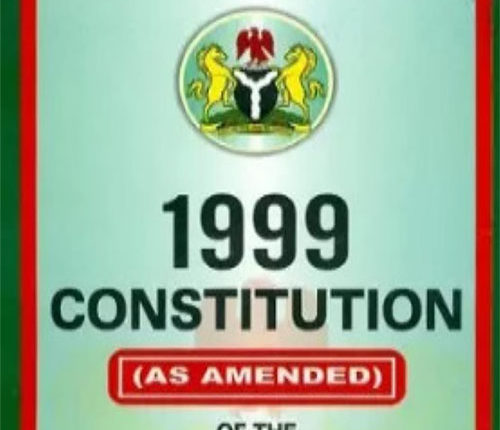Section 305 of the 1999 Constitution as Amended outlines the procedure for the declaration of a state of emergency. This provision grants the President the authority to issue such a proclamation under specific circumstances and establishes the necessary processes to ensure checks and balances.
The President may issue a proclamation of a state of emergency only under the following conditions:
War or Imminent Danger: If the Federation is at war or faces imminent danger of invasion or involvement in a state of war.
Breakdown of Public Order: In cases where there is an actual breakdown of public order and public safety in the Federation or any part thereof, to the extent that extraordinary measures are required to restore peace and security.
Clear and Present Danger: When there is a clear and present danger of an actual breakdown of public order and public safety in any part of the Federation, necessitating extraordinary measures to avert such danger.
Natural Calamity: If there is an occurrence or imminent danger of any disaster or natural calamity affecting the community or a section of the community in the Federation.
Public Danger: When there is any other public danger that clearly constitutes a threat to the existence of the Federation.
Request by State Executive: If the President receives a request to do so in accordance with the provisions of subsection (4) of Section 305.
These conditions are detailed in Section 305(3) of the Constitution.
The process for proclaiming a state of emergency involves several key steps:
Issuance of Proclamation: The President issues a proclamation of a state of emergency through an instrument published in the Official Gazette of the Government of the Federation.
Transmission to National Assembly: Immediately after the issuance, the President must transmit copies of the Official Gazette containing the proclamation to the President of the Senate and the Speaker of the House of Representatives.
Approval by National Assembly: The National Assembly is required to convene and consider the proclamation. For the proclamation to remain effective, it must be approved by a resolution supported by a two-thirds majority of all members of each House:
If the National Assembly is in session, within two days after the publication of the proclamation.
If the National Assembly is not in session, within ten days after the publication of the proclamation.
Duration and Extension: A proclamation approved by the National Assembly remains in force for six months. However, the National Assembly may extend the period of the state of emergency by a further six months through a resolution passed in the same manner.

Revocation: The proclamation ceases to have effect if:
It is revoked by the President through an instrument published in the Official Gazette.
The National Assembly does not approve the proclamation within the specified time frame.
The six-month period elapses without extension.
Either House of the National Assembly revokes the proclamation by a simple majority resolution.
These procedural details are outlined in Section 305(2), (5), and (6) of the Constitution.
A state governor may request the President to issue a proclamation of a state of emergency in their state if:
There is an actual breakdown of public order and public safety to the extent that extraordinary measures are required to restore peace and security.
There is a clear and present danger of such a breakdown.
There is an occurrence or imminent danger of any disaster or natural calamity affecting the community or a section of the community in the state.
This provision ensures that state executives can formally acknowledge situations that may necessitate federal intervention.
The declaration of a state of emergency has significant implications, including:
Suspension of Normal Government Functions: Certain governmental functions and processes may be temporarily suspended to address the emergency effectively.
Deployment of Extraordinary Measures: The government may implement measures that would otherwise be outside the scope of normal operations to restore order and ensure public safety.
Impact on Fundamental Rights: Some fundamental rights and freedoms may be restricted during the period of emergency to the extent necessary to address the situation.
It is crucial that such measures are proportionate and in compliance with constitutional provisions to prevent abuse of power.
Section 305 of the 1999 Constitution of Nigeria provides a comprehensive framework for the declaration of a state of emergency, balancing the need for swift executive action with legislative oversight to prevent potential abuses. This ensures that such extraordinary powers are exercised transparently and within the bounds of the law.

